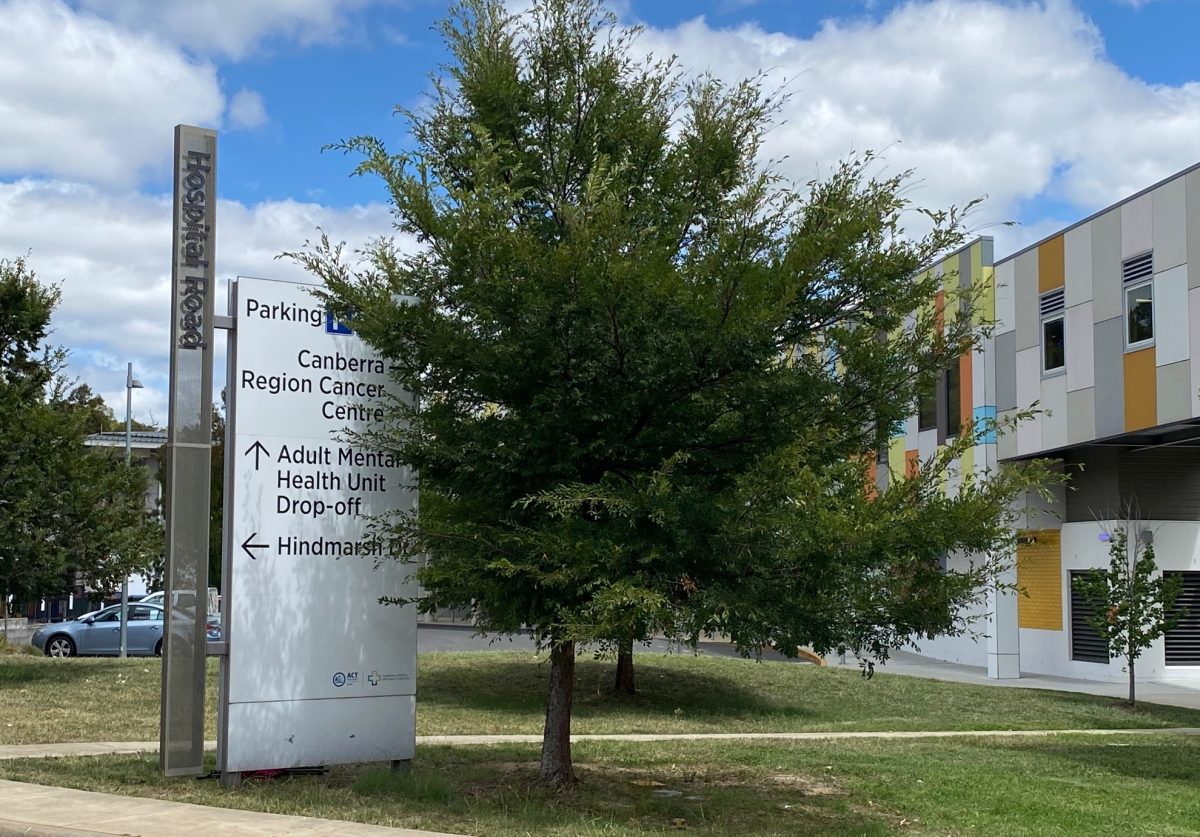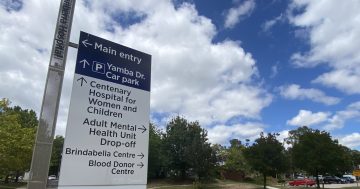
The Adult Mental Health Unit is a ‘closed’ facility located at the Canberra Hospital. Photo: Claire Fenwicke.
Surely one of the most significant tasks facing a new ACT Government following the October election is engaging with the community sector, as experts in their respective areas, so we can ensure good outcomes for all Canberrans.
Focussing on Canberra’s mental health system, too many residents still struggle to find any mental health care when they need it, let alone quality mental health care.
The bulk of ACT mental health funding is funnelled to hospital-based care, either in acute or outpatient settings. Access to these services typically requires a person to be very unwell, at risk to themselves or others. We wait until a person is in crisis before providing professional mental health care.
The clinical and psychosocial services provided by community organisations can help people stay well in the community and reduce the need for expensive, often traumatic hospital-based care. Opportunities to intervene earlier are being missed. Little wonder our system is under such stress.
While under-resourcing remains a significant factor creating pressure right across Canberra’s mental health system, it is not the only factor.
Despite our geographic size and the relatively small overall number of people needing mental health care, different funding streams across different funders keep mental health providers working in silos. This has resulted in a system that is incohesive and exclusionary.
This, combined with separate reporting arrangements, means for example, we cannot tell whether mental health services provided to a person in the community have had any effect on admissions to emergency services. Our system is fragmented, not integrated.
Increasing funding to the community sector, and a joined-up approach to mental health outcomes development as part of the government’s Wellbeing Framework would be a good start. This framework has a sophisticated set of measures in relation to child and youth health that could be replicated effectively to better track the mental health and wellbeing of Canberrans.
Our community sector organisations are also facing uncertain accommodation in many cases, with leases due. The government could fix this by providing new, longer-term tenancies.
In addition to these structural reforms, the government should consider investing in new community mental health hubs (and building on the recent Federal Budget commitment). These hubs could usefully blend clinical and psychosocial services, helping to address loneliness and social isolation, as well as access and navigation assistance to other support services, such as alcohol and drug, and housing.
Expanding the existing Safe Haven service to seven days a week would be another key contribution.
The Mental Health Community Coalition (MHCC) ACT is also asking for the next government to commit to building a residential parent-baby mental health unit and developing a world-class perinatal mental health service to give Canberra kids and their families the best start.
Fire, hail and smoke has already given Canberrans frightening awareness of the power of climate change. All government policies should now be assessed with this in mind, responding to community concerns about this issue and creating more opportunities for volunteering and engagement in mitigation work for better community mental health.
There is a lot to do to fix mental health in Canberra. Community and public sector services need to work together now. But to surmount the traditional silos, something extra is needed: visionary political leadership. Following the election, the next set of ACT political leaders (both in government and opposition) can create a new environment for cooperation and rebalance our system from the hospital towards care in the community. Reform of mental health in Canberra depends on this leadership. What an opportunity!
Dr Sebastian Rosenberg is an associate professor and outcomes development specialist for the Mental Health Community Coalition ACT. In the next article of this series, Will Mollison, executive officer of Families ACT, provides us with his perspective of the community sector before he retires later this month.





















